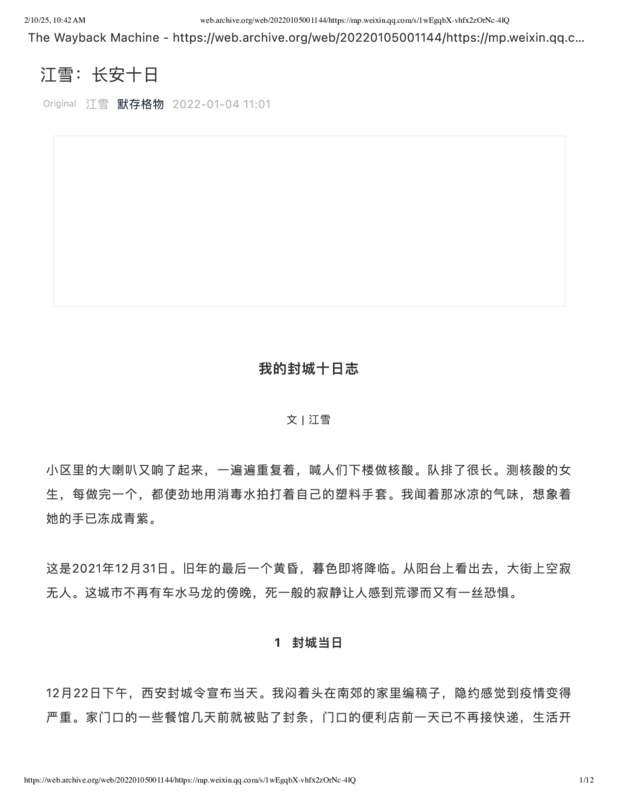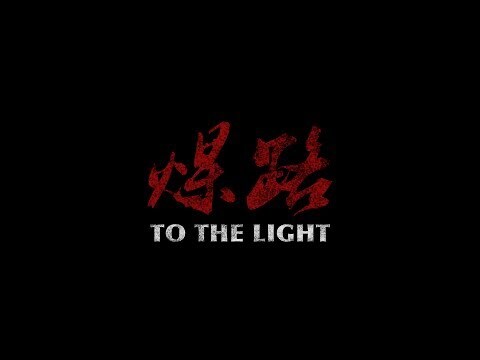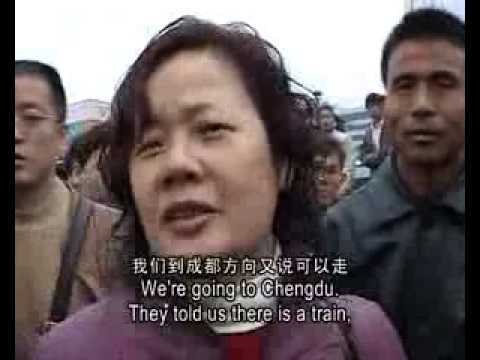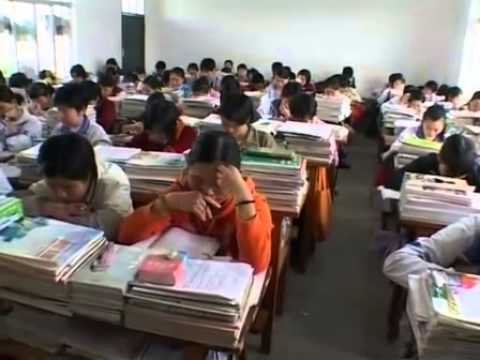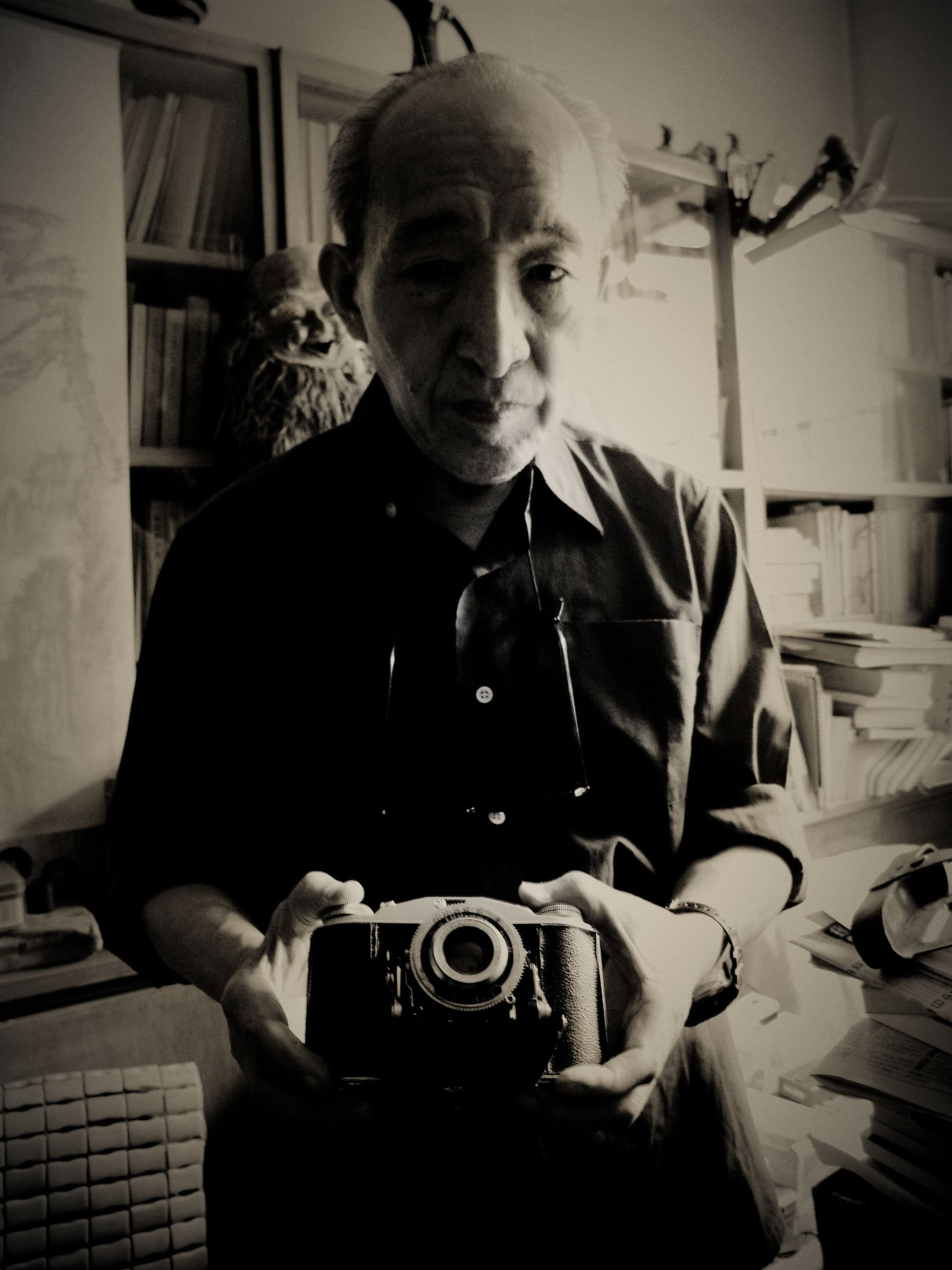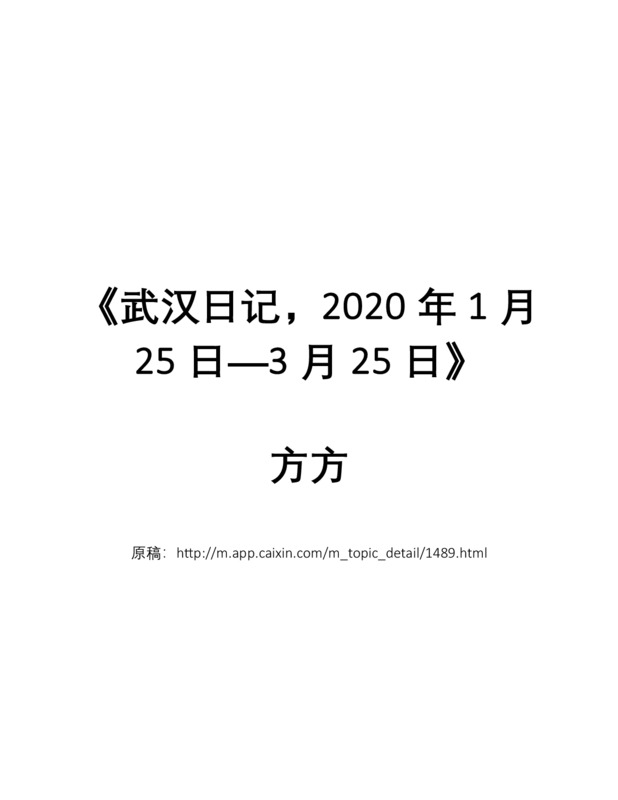Explore the collection
Showing 32 items in the collection
32 items
Film and Video
Taishi Village
In the fall of 2005, residents of Taishi Village became increasingly frustrated and angered by the sale of land by village officials; hundreds of villagers signed a petition calling for the removal of the village chief. The villagers occupied the village committee’s financial office and expressed their demands through sit-ins and other forms of protests. The government dispatched the police to arrest village activists, but the villagers insisted on starting a formal recall process. The government finally sent a team to the village to verify the signatures for the petition.
<i>The Taishi Village</i> recall incident generated attention from Chinese and foreign media, and caused uneasiness among local government officials. On September 12, 2005, police arrested dozens of villagers who were participating in a sit-in in the village committee room. Despite the pressure, villagers elected a committee to remove the village committee director. The government then dispatched more men to exert pressure, forcing elected members to withdraw one by one. Hired patrol teams eventually drove lawyers and reporters out of the village.
This documentary records the protest scenes and tragic ending of Taishi village’s movement for autonomy, and presents the surging rights consciousness in rural areas in Guangdong. This incident demonstrates villagers’ ability to exercise their right to vote and the government’s inertial approach to grassroots democracy movements.
This documentary is in Chinese with Chinese subtitles.
Article
Ten Days in Xi'an
Published on January, 2022, “Ten Days in Xi’an” is a log of Chinese independent journalist Jiang Xue’s daily experiences under COVID-19 lockdown, posted onto WeChat’s social media platform. In this piece, Jiang depicts the crises and challenges faced by Xi’an residents under lockdown, such as the lack of access to medical resources. “Ten Days in Xi’an” was viewed by millions of Chinese users on social media platforms when it was posted, and received comments and support from thousands of Chinese citizens. It was later translated into English by Andréa Worden and published on Probe International virtually. You can find the translated article in the PDF below, or through this link: <https://journal.probeinternational.org/2022/08/22/ten-days-in-xian/>.
Film and Video
The Central Plains
Due to poverty in rural areas in Henan Province—part of China’s Central Plains—many farmers contracted AIDS by selling their blood. This documentary dives into the lives of these AIDS patients, depicting the manner in which they cope with life, officials’ responses, and the stories of volunteers who helped the infected villagers. The filmmaker visited several villages with high incidence of AIDS, interviewing and recording people’s accounts of how the “plasma economy” arose. This documentary presents the living condition of families and individuals, especially women and children, who contracted AIDS due to blood donation and blood transfusions, and demonstrates the formation of grassroots organizations.
This film is in Chinese with both Chinese and English subtitles.
Film and Video
The Coal Road
This documentary tells the story of the lives of three families of coal miners in the mountains of eastern Sichuan. Winner of the 35th Margaret Mead Movie Director's Award in 2011. Directed by Liu Yuanchen.
Film and Video
The Train to My Hometown
As the Lunar New Year approached in 2008, the main north-to-south railway line, the Beijing-Guangzhou line, was halted and the trains stopped running due to tickets being overbooked. With the trains still not running, thousands of migrant workers from Guangdong gathered at the Guangzhou Railway Station, waiting for trains bound for their hometowns. The Guangdong Province government immediately launched an emergency transportation plan. For the first time, the trading center hall where the Canton Fair was held was transformed into a waiting room for migrant workers. Many volunteers provided services to relieve the fears of worried migrant workers.
The crowd began to panic as rumors swirled, and people were trampled underfoot. One was a young female worker, Li Hongxia. Another migrant, Li Manjun, who was eager to travel home to get married, was electrocuted and died after attempting to jump onto the train. This documentary records the chaos at the Guangzhou Railway Station during the Lunar New Year’s Eve period, from January 27 to February 6, 2008. The filmmaker also visited Shenzhen, Shaoguan, Ruyuan, as well as conducted interviews in victims’ hometowns in Jianli, Hubei, and the rural regions of Yueyang, Hunan.
This film is in Chinese with both English and Chinese subtitles.
Film and Video
Third year of High School
Seventy-eight students from Fujian's Wuping No. 1 High School take the college entrance exam as the only way to enter university. This brutal puzzle shows us how teachers and students who regard grades as more important than anything else are bred under China's education system.
Film and Video
Though I Am Gone
On August 5, 1966, Bian Zhongyun, a 50-year-old vice principal of the Girls High School affiliated with Beijing Normal University, was beaten to death. The murder was by some of her students, a group of female Red Guards from the school. Bian was the first educator to be killed in Beijing during the Cultural Revolution. The night Bian was killed, Deng Xiaoping's two daughters, Deng Nan and Deng Rong, found Bian's husband and told him that they could only say that Bian died of high blood pressure due to illness, but not that Bian was killed. In the end, no one was criminally prosecuted.
This film is widely regarded as one of Hu Jie's most famous for its portrayal of Bian's husband, Wang Jingyao, and his efforts to document his wife's murder.
Follow director Hu Jie on his <a href="https://www.youtube.com/@jiehu6613">YouTube channel</a>.
Film and Video
Three Days in Wukan
Wukan is a village in Luwei City, under the jurisdiction of Shanwei City, Guangdong Province. From 2011 to 2016, Wukan villagers have continued to fight to protect their land and fight for villagers' rights. Facing strong pressure from the government, some even paid with their lives. In the process, the villagers had elected their own villagers' committee by one person, one vote to practice their democratic rights. Although the protests were eventually suppressed, the impact was far-reaching. Ai Xiaoming rushed to the scene at the beginning of the Wukan incident and left this precious record.
Film and Video
Why Are Flowers So Red
This film follows the stories of environmental activist Tan Zuoren and artist Ai Weiwei. In July 2009, Tan Zuoren was charged with the crime of “Inciting subversion of state power,” and his trial was held in Chengdu, Sichuan Province. Ai Weiwei was invited by Tan’s lawyer to testify in court, but the night before the trial, he was assaulted by the police and detained in a hotel. To everyone’s surprise, Ai turned on the tape recorder before the police entered his residence and managed to record the incident. Later, Ai and his colleagues released a documentary about this incident, titled “Disturbing the Peace” (or “Laoma Tihua”).
This film interviews the people behind the scenes of “Disturbing the Peace,” including the director, photographers, editors, and audiences of the film, who discuss the relationship between citizens and government authority.
This series of films are in Chinese with Chinese subtitles.
Article
Wuhan Diary
This collection of diary entries by Wuhan-based filmmaker and activist Ai Xiaoming showcases her life during the early months of the COVID-19 pandemic, from February to March 2020. In these diary entries, Ai shares the daily challenges which many Chinese people grappled with, as well as their hopes and questions for the government and Chinese society at large. Her diary also examines problems regarding the expanding powers of the Chinese government. The first entry of Ai’s diary was published in English by the New Left Review, which can be found here:
https://newleftreview.org/issues/ii122/articles/xiaoming-ai-wuhan-diary.
Book
Wuhan Diary: Dispatches from a Quarantined City
This book is a collection of diary entries written in the early months of the COVID-19 pandemic by Fang Fang, a Chinese writer and advocate of the working poor in China. In these diary entries, Fang Fang documents the various daily difficulties faced by her and other Wuhan residents from January to March 2020. In this book, she also ponders the implications of official policies with regard to the pandemic and the way in which the public and the government have responded to the outbreak of COVID-19. These entries tell us about the hopes and fears of the people of Wuhan during the early stage of COVID-19, and adds to our understanding of public opinion and government policies in China in the 2020s. The diaries were published in Chinese, and have also been translated by Michael Berry into English and published by Harper Collins Publishers.
You can purchase the English version of the book using <a href="https://www.harpercollins.com/products/wuhan-diary-fang-fangmichael-berry?variant=40153409749026">this link</a> .
Film and Video
Beijing's Petition Village
In China, individuals can complain to higher authorities about corrupt government processes or officials through the petition system. The form of extrajudicial action, also known as "Letters and Visits" (from the Chinese xinfang and shangfang), dates back to the imperial era. If people believe that a judicial case was concluded not in accordance with law or that local government officials illegally violated his rights, they can bring it to authorities in a more elevated level of government for hearing, re-decide it and punish the lower level authorities. Every level and office in the Chinese government has a bureau of “Letters and Visits.” What sets China’s petitioning system apart is that it is a formal procedure—and as Zhao Liang's documentary shows, the system is largely a failure.
A residential area near Beijing South Railway Station was once home to tens of thousands of residents from all over the country. Known as “Petition Village,” its bungalows and shacks were demolished by authorities several times, but many petitioners still clung to the land in search of a clear future. _Beijing Petition Village_ portrays the village in the midst of this upheaval, focusing on the thousands of civilians who travel from the provinces to lodge their complaints in person with the highest petitioning body, the State Bureau of Letters and Visits Calls in the province, only to repeatedly get the brush-off by state officials. Ultimately, in 2007, Petition Village was demolished for good.
The film went on to win the Halekulani Golden Orchid Award for Best Documentary Film at the 29th Hawaii International Film Festival, and a Humanitarian Award for Documentaries at the 34th Hong Kong Film Awards.

